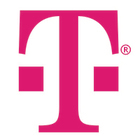In the TMobile Home Internet app, under “Devices”, I recognize all of my devices EXCEPT one — the list includes a mystery device with its IP address and its MAC address.
This mystery device is currently shown as being offline.
I changed my network password during initial setup (two days ago), and I believe my network is secure.
- Does TMobile connect something to my network?
- Does the app assign new IP and MAC addresses each time a device connects to the network, and maybe the app is displaying information from when a device was previously connected by me?
- Is there any easy way for me to determine what this mystery device is?
Thanks.





